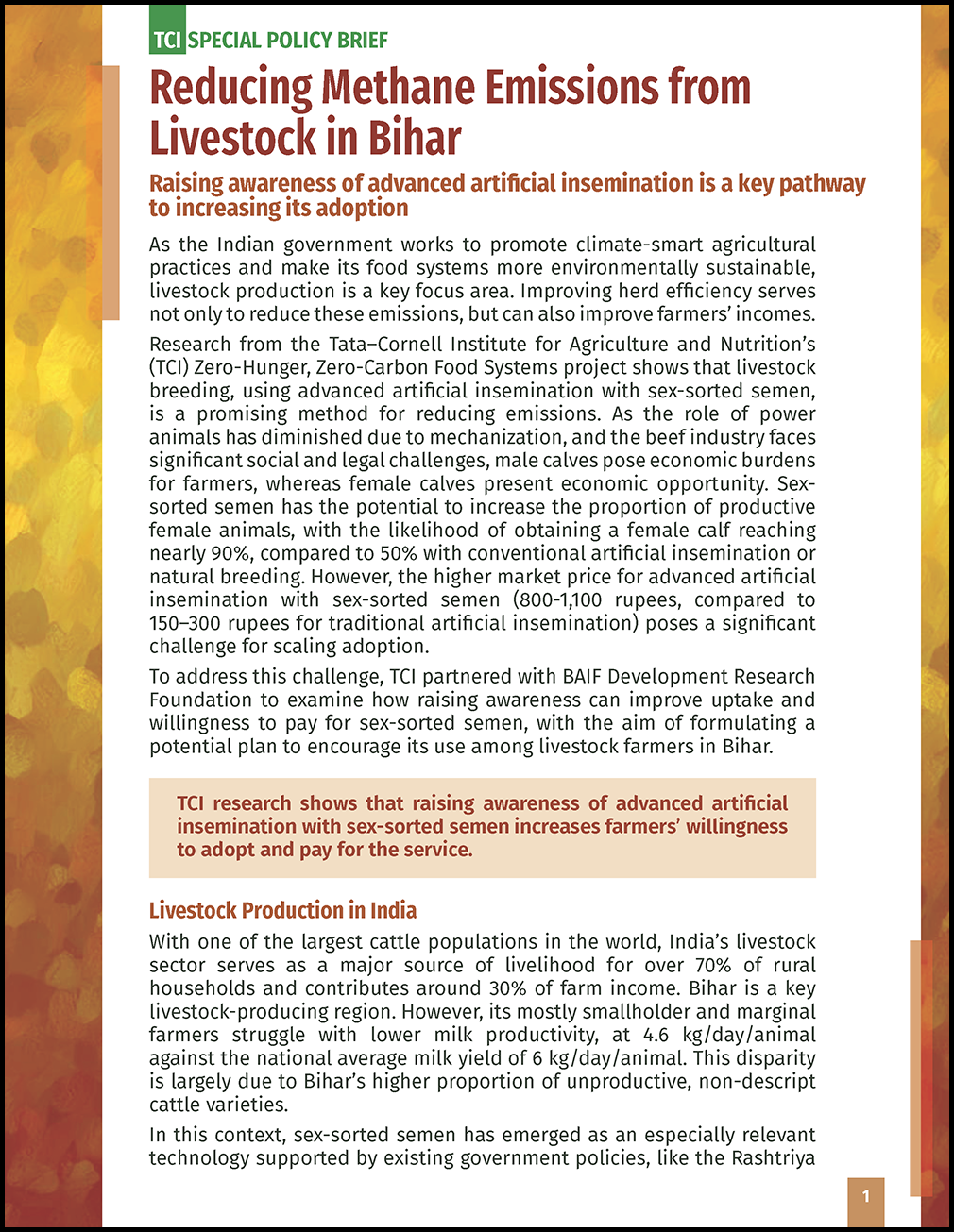Reducing Methane Emissions from Livestock in Bihar
 This special policy brief presents preliminary results from a TCI study on the impact of awareness campaigns on farmer adoption of advanced artificial insemination with sex-sorted semen for livestock breeding, a potential pathway for increasing productivity and reducing methane emissions from livestock production in Bihar. The analysis shows that raising awareness of advanced artificial insemination can increase farmers’ willingness to adopt and pay for the service.
This special policy brief presents preliminary results from a TCI study on the impact of awareness campaigns on farmer adoption of advanced artificial insemination with sex-sorted semen for livestock breeding, a potential pathway for increasing productivity and reducing methane emissions from livestock production in Bihar. The analysis shows that raising awareness of advanced artificial insemination can increase farmers’ willingness to adopt and pay for the service.
Awareness increases adoption
To test the effectiveness of awareness-raising campaigns on the adoption of advanced artificial insemination, TCI administered a series of campaigns in eight cattle development clusters in Bihar and made doses of sex-sorted semen available for different prices. After the awareness campaigns, awareness of advanced artificial insemination increased by 15.6% and willingness to adopt the service increased by 27%. Willingness to pay for sex-sorted semen doses increased 7%, suggesting that information from trusted sources can improve the adoption of new technologies once the price barrier has been crossed.
Zero-Hunger, Zero-Carbon Food Systems
This policy brief was published as part of TCI’s project on Zero-Hunger, Zero-Carbon Food Systems. The project aims to support the reduction of GHG emissions associated with agriculture while improving productivity and benefiting farmer livelihoods.

